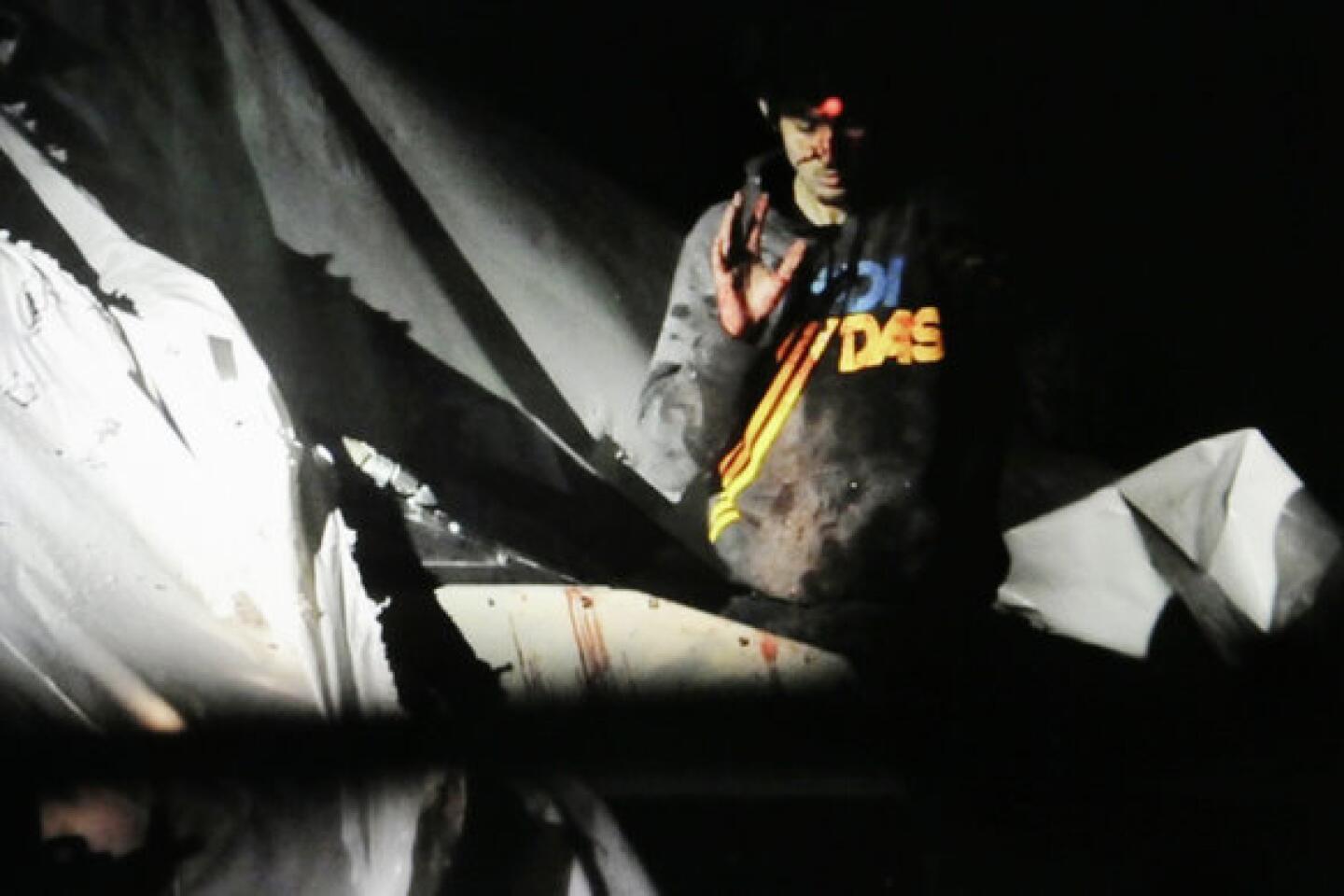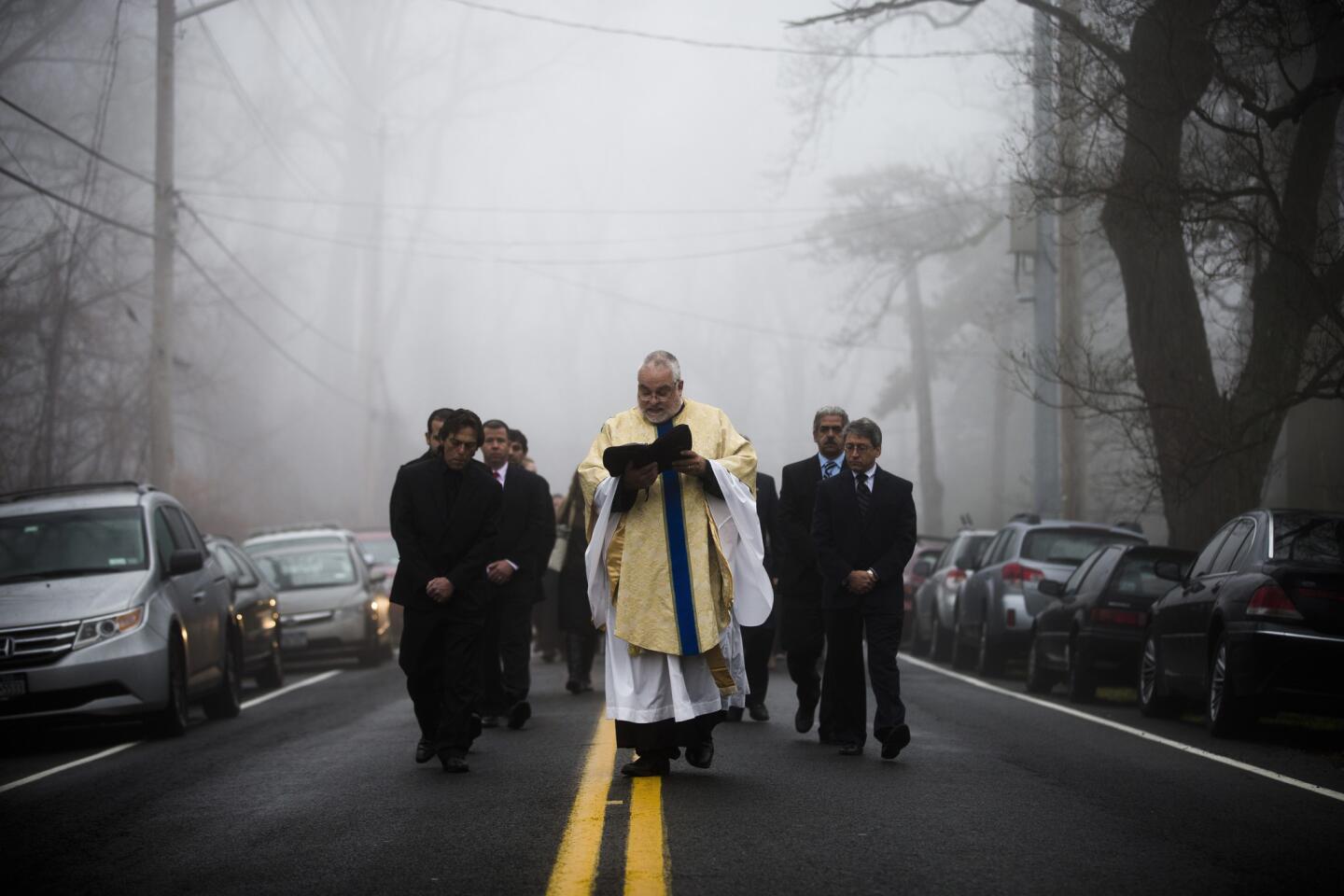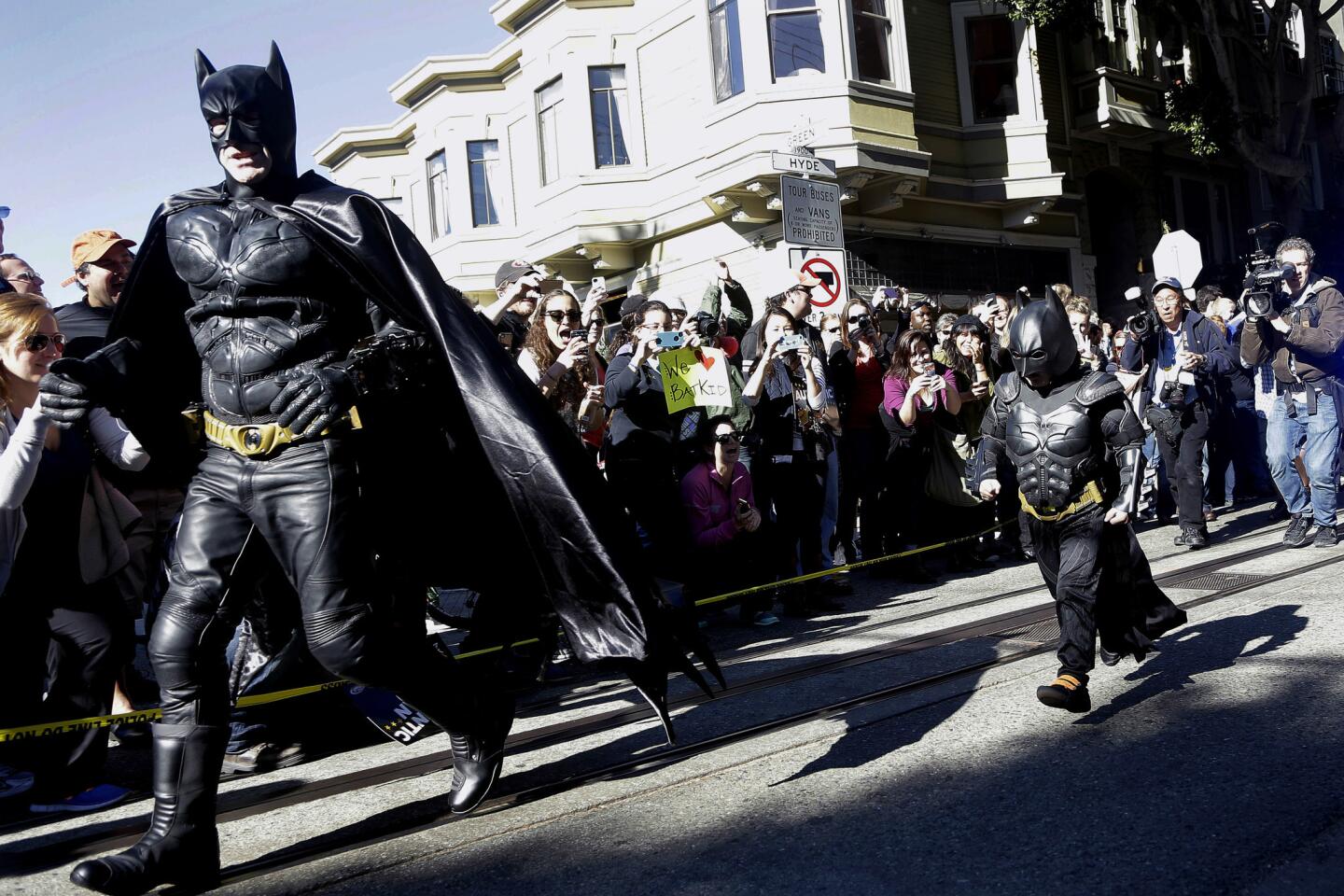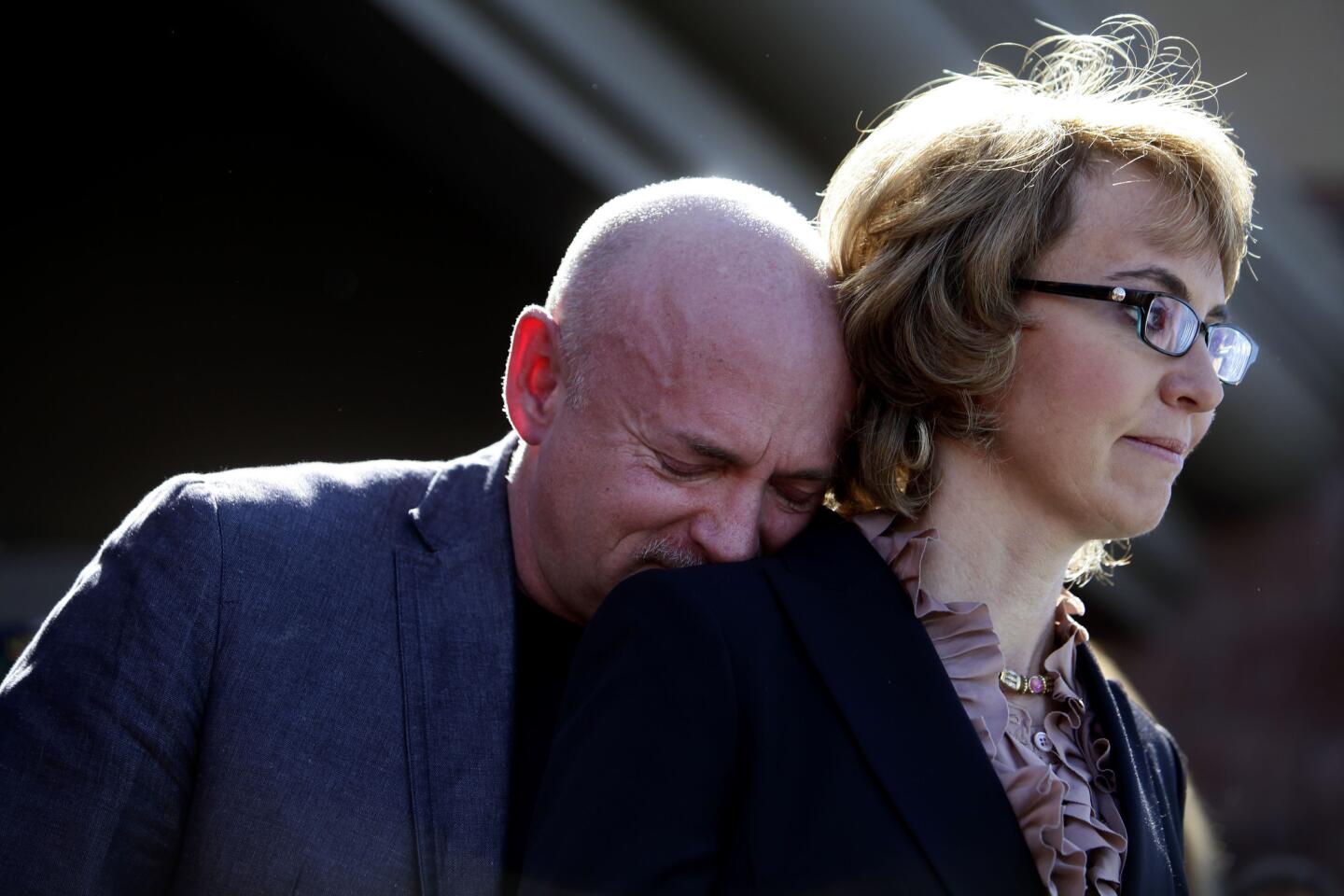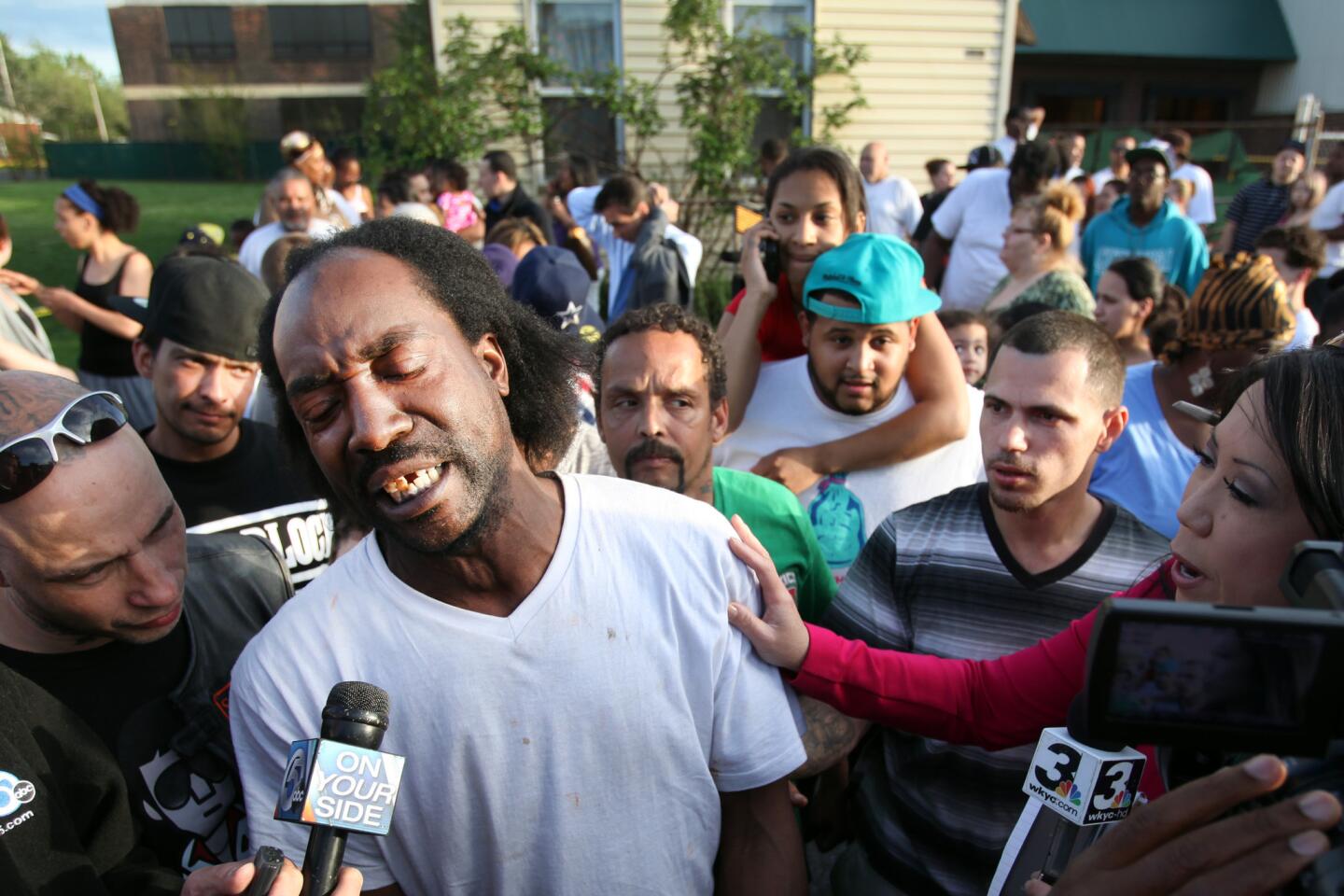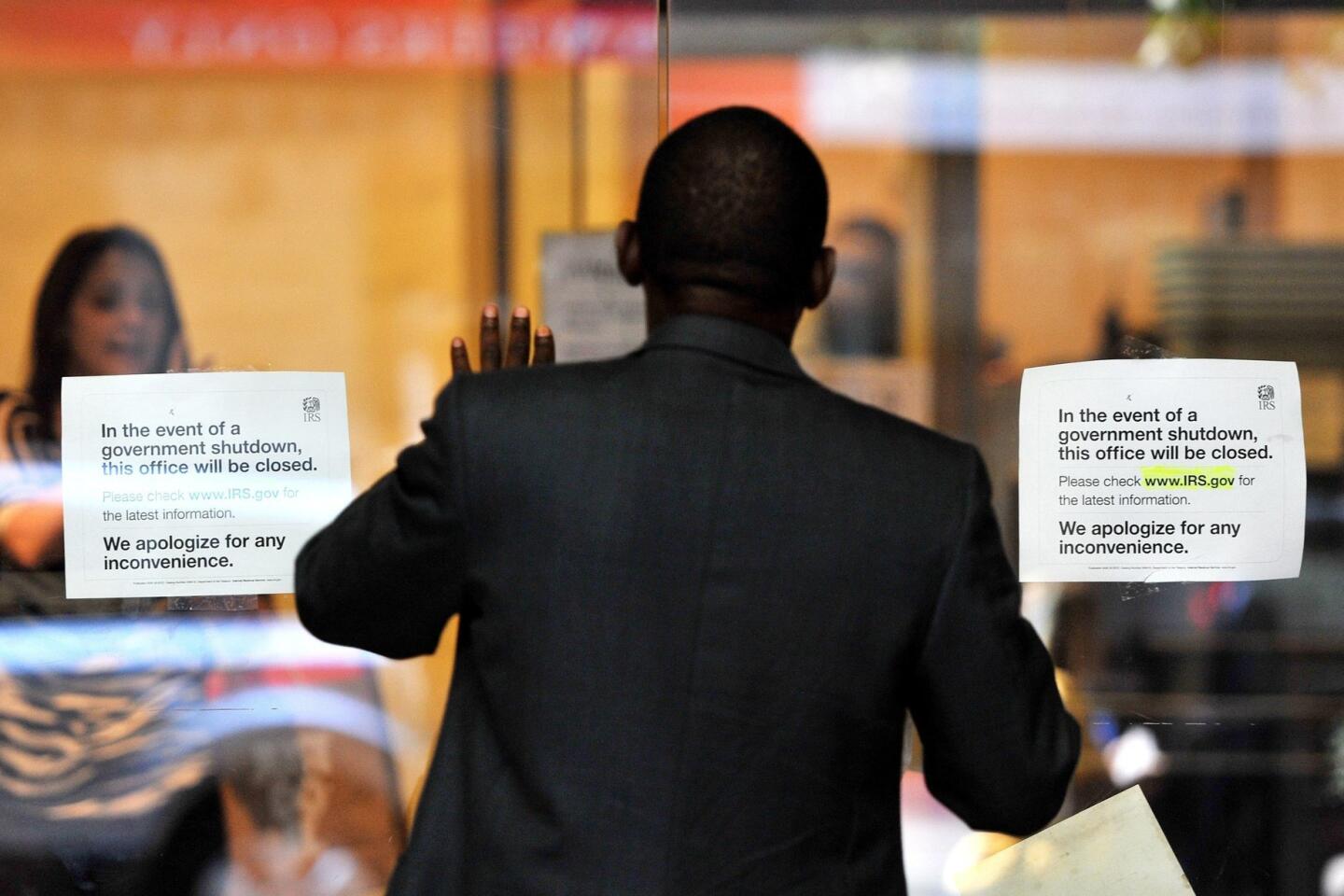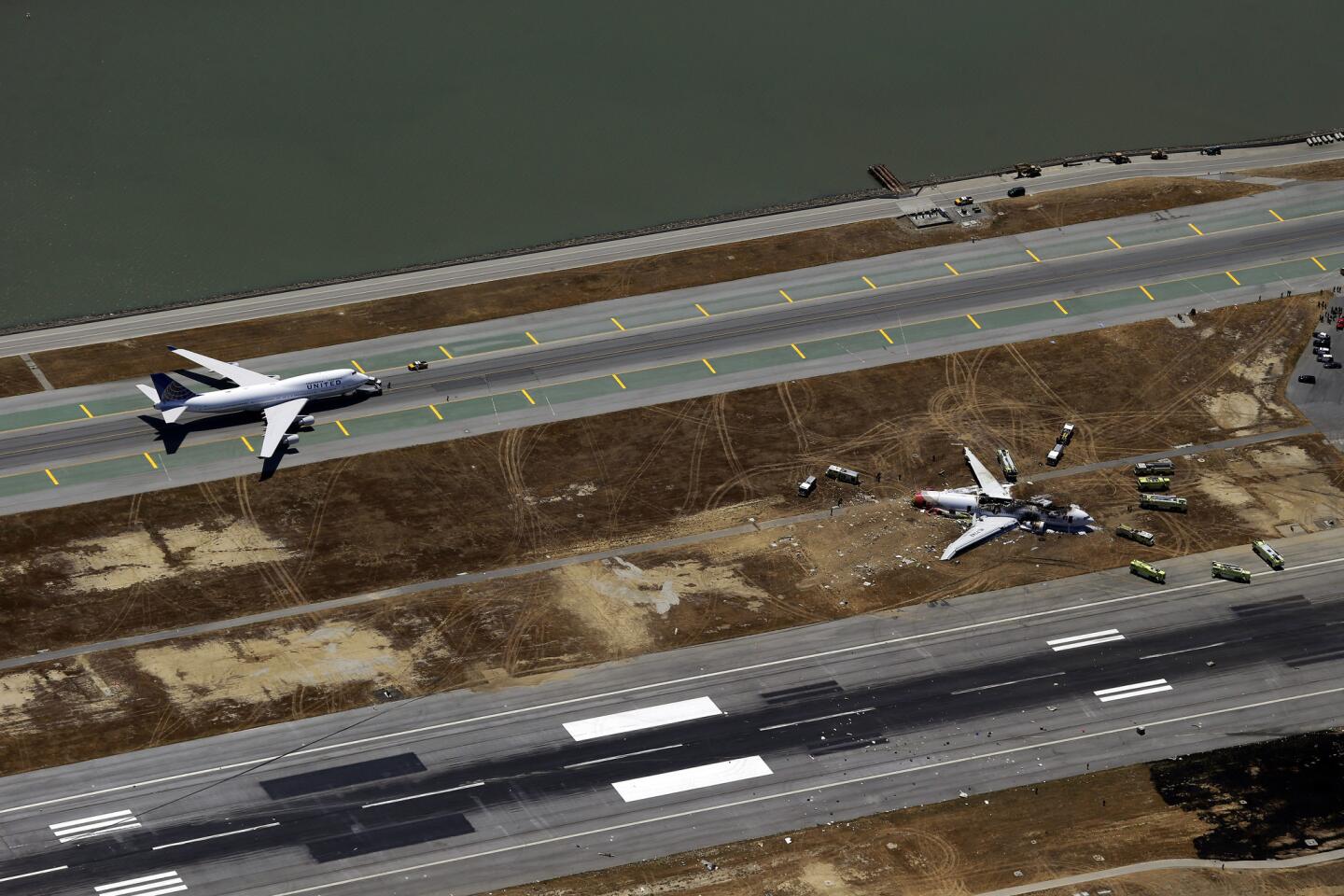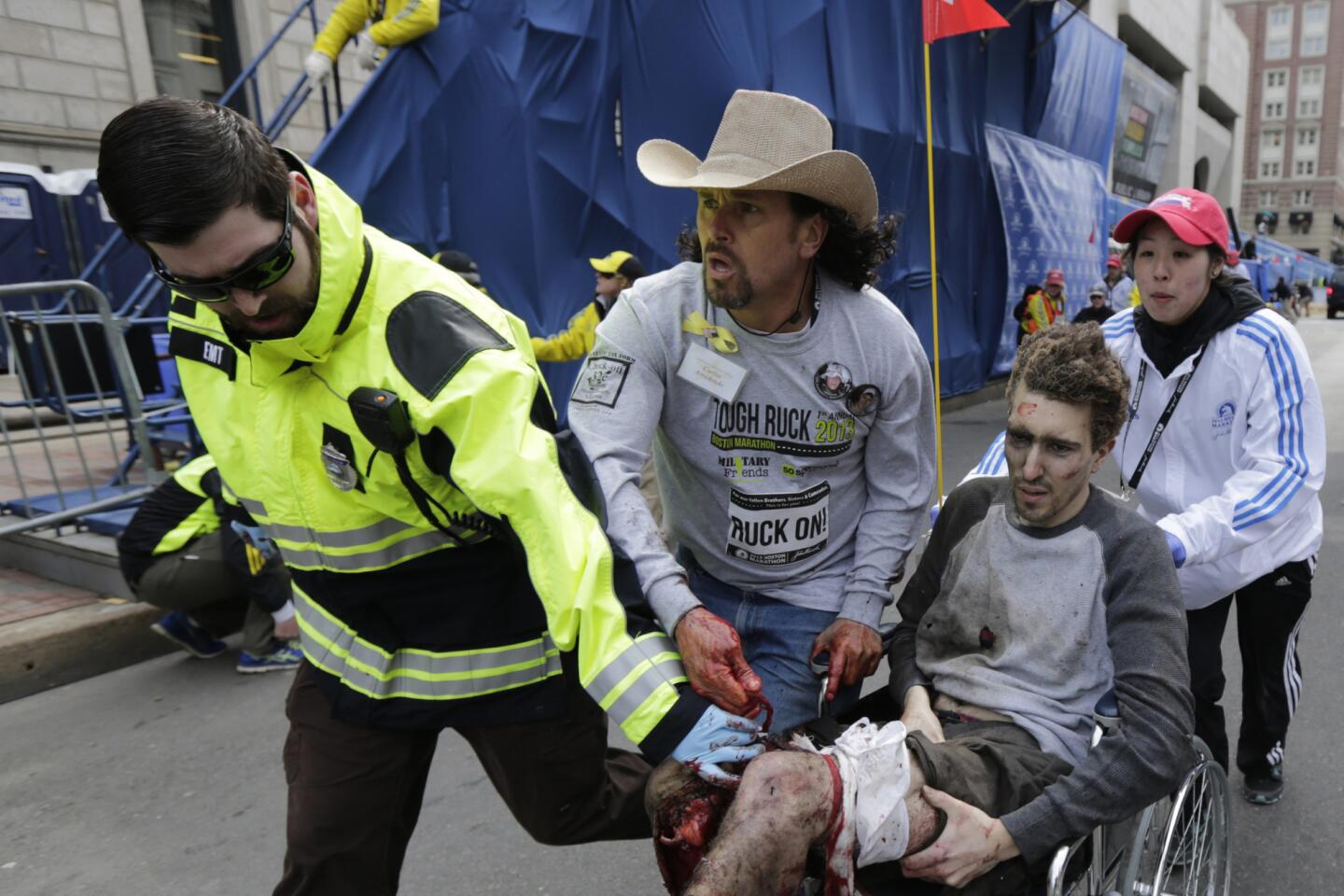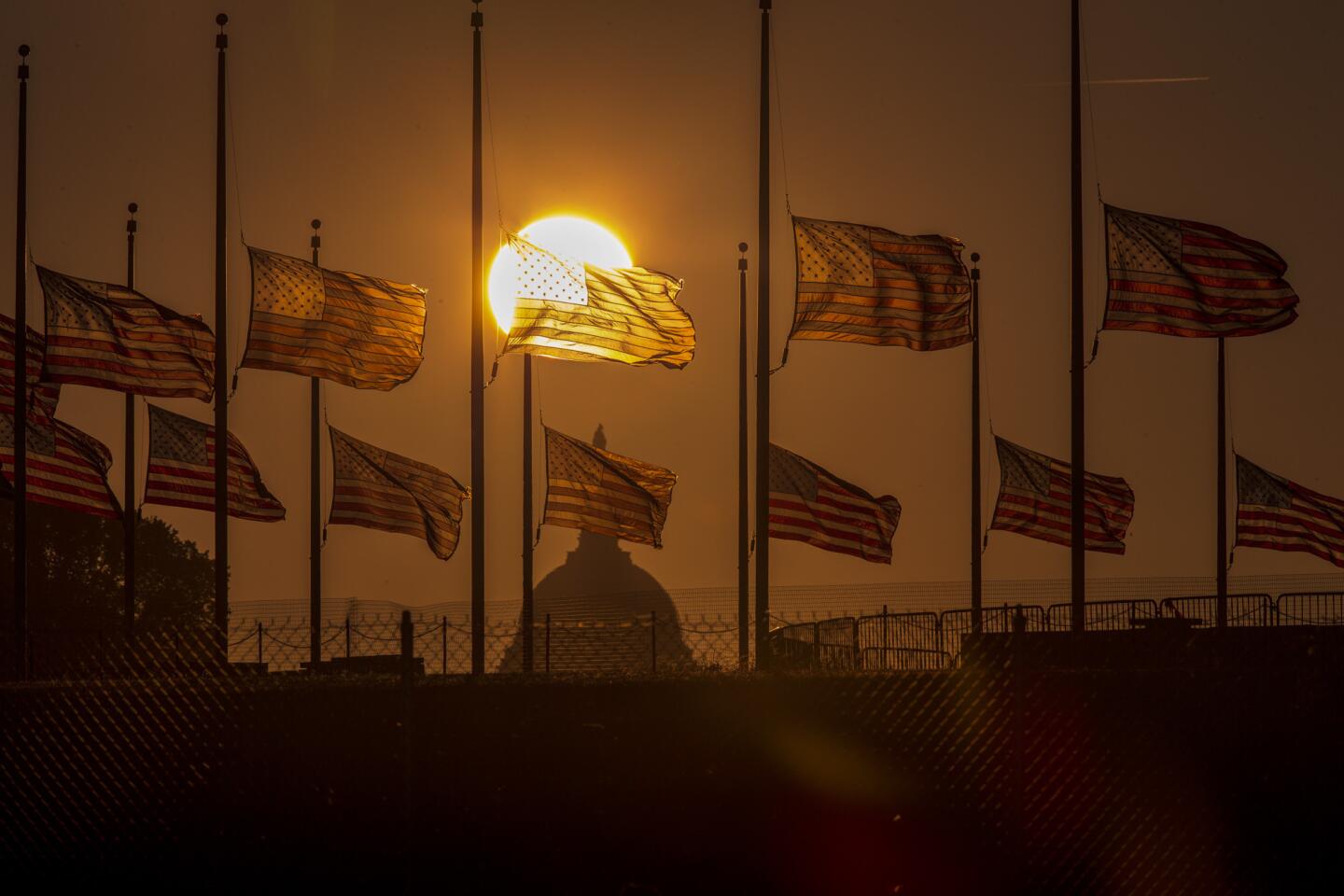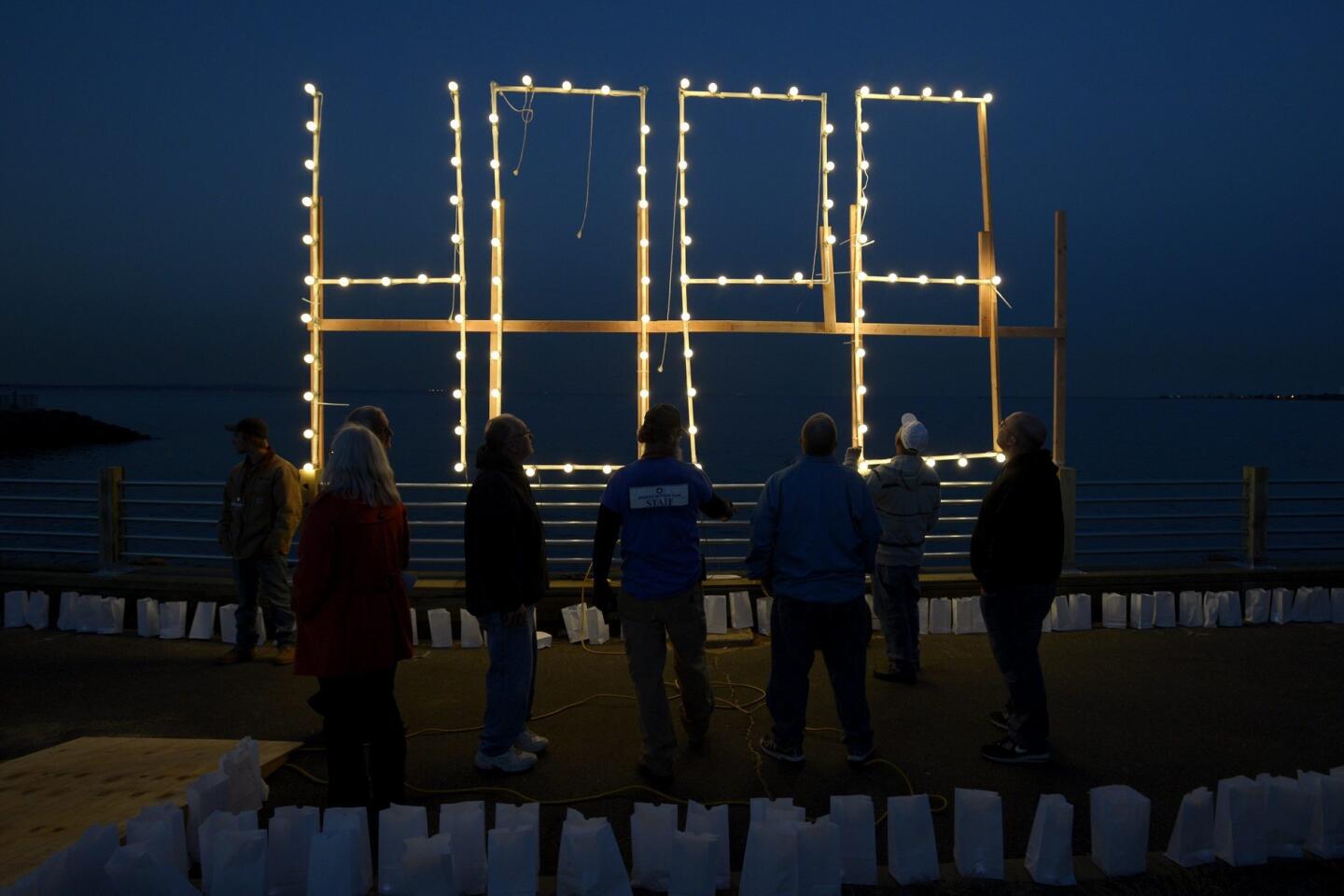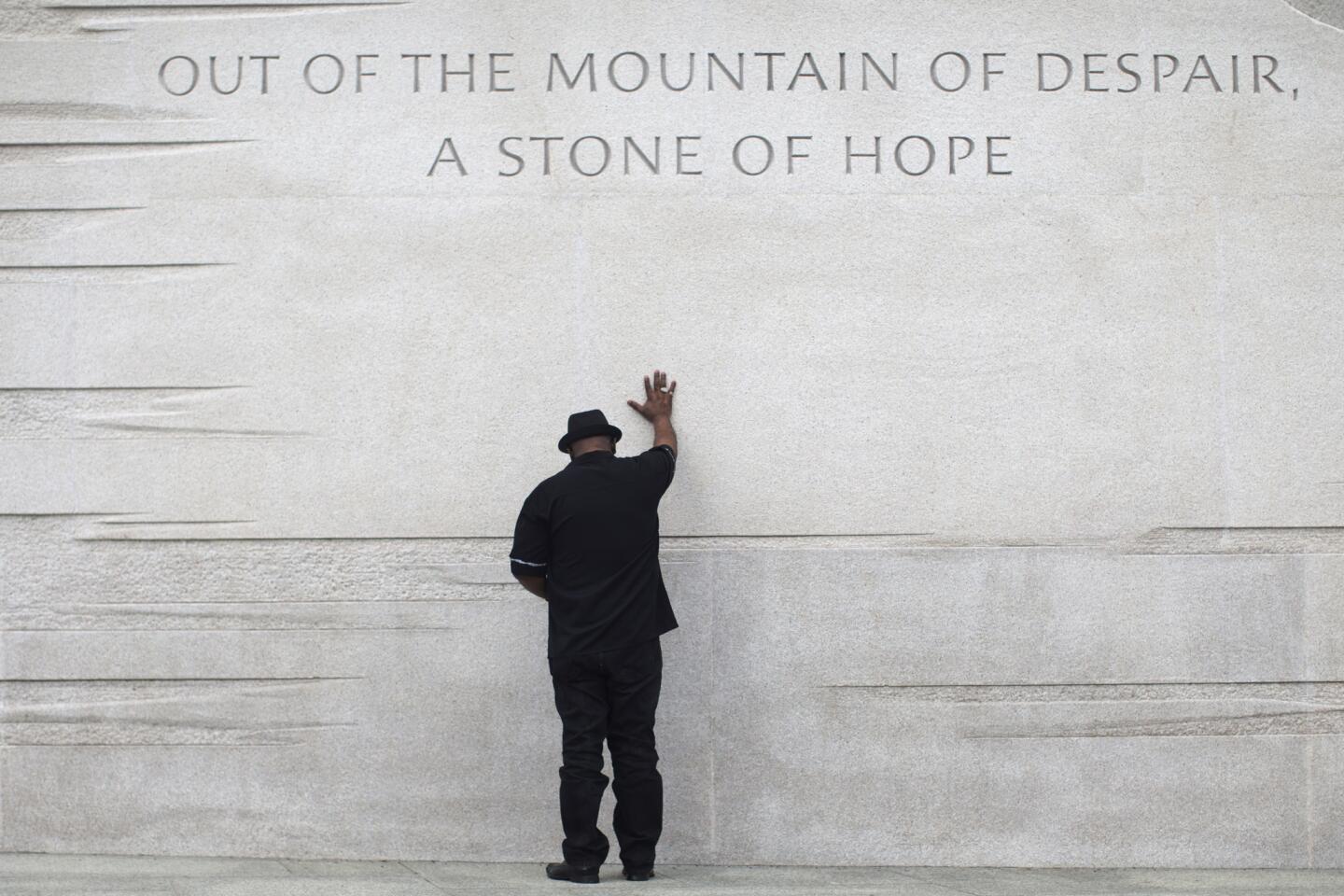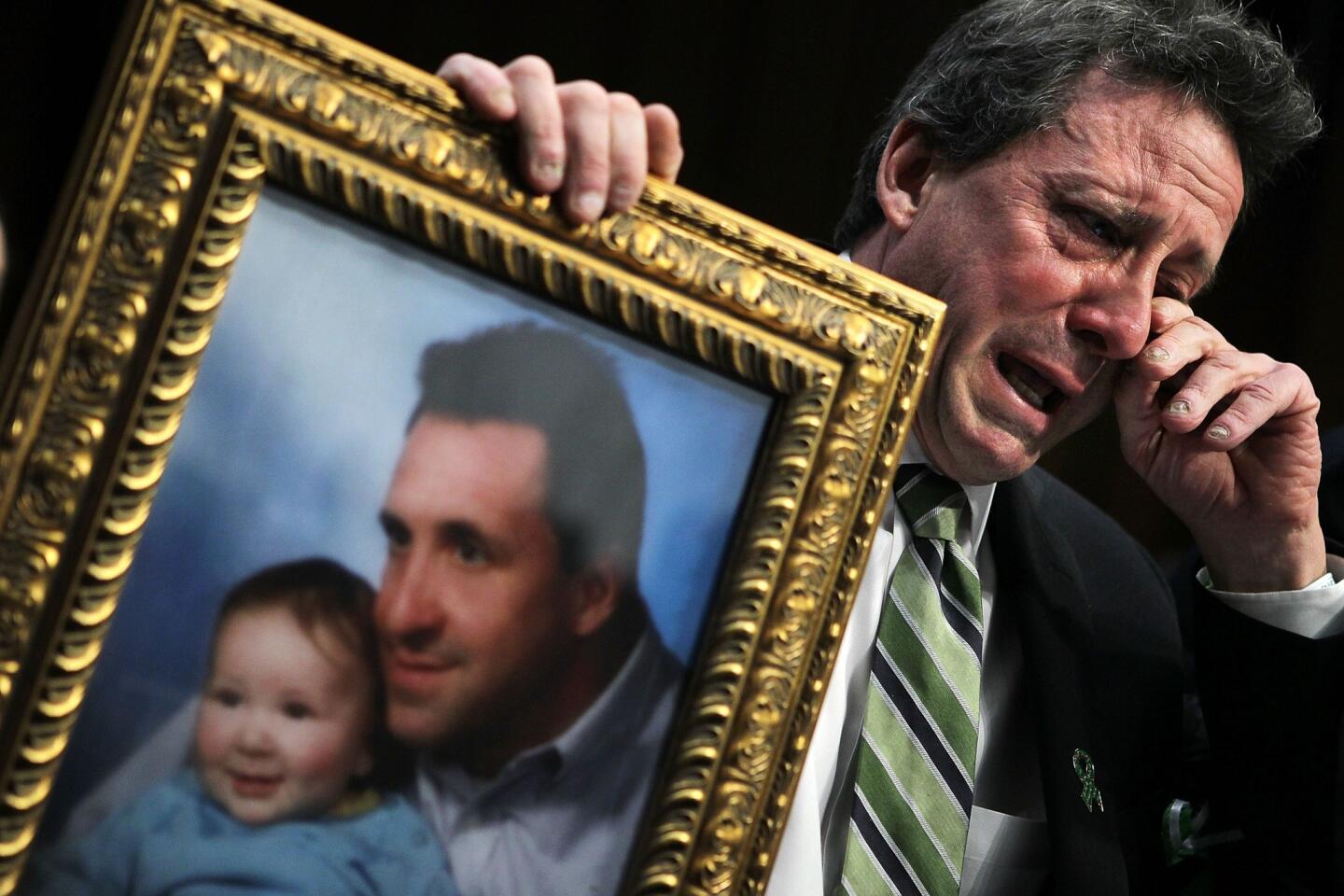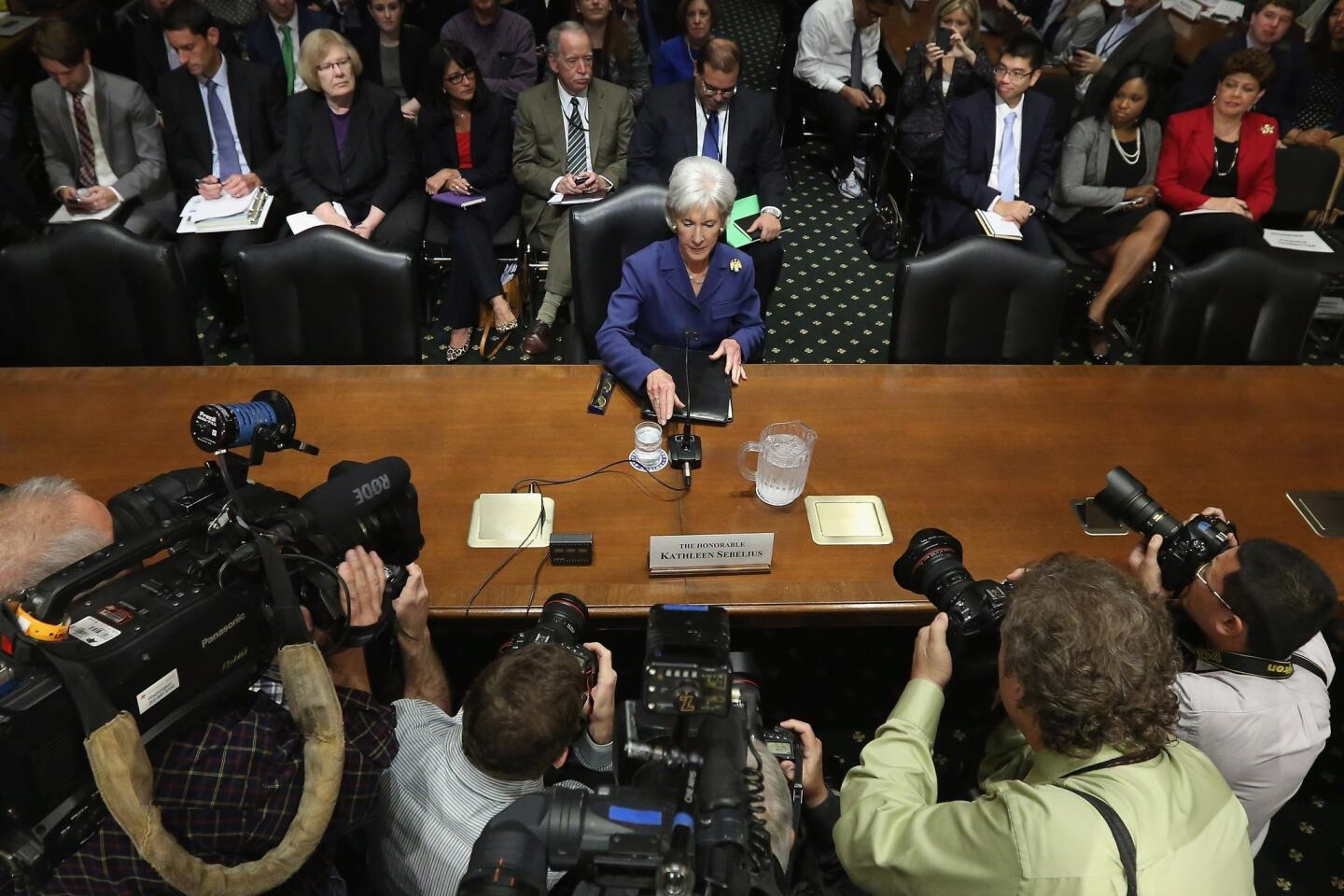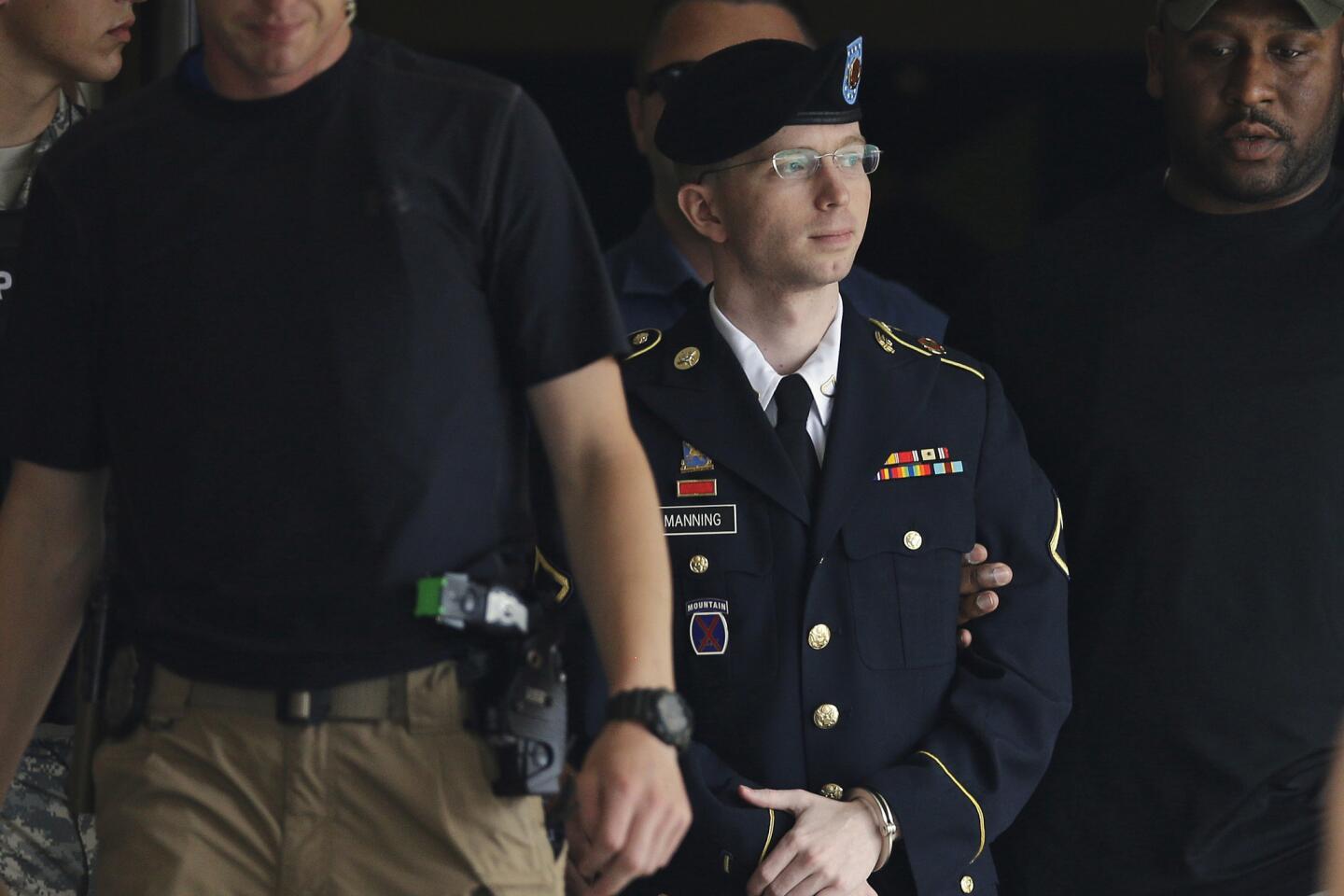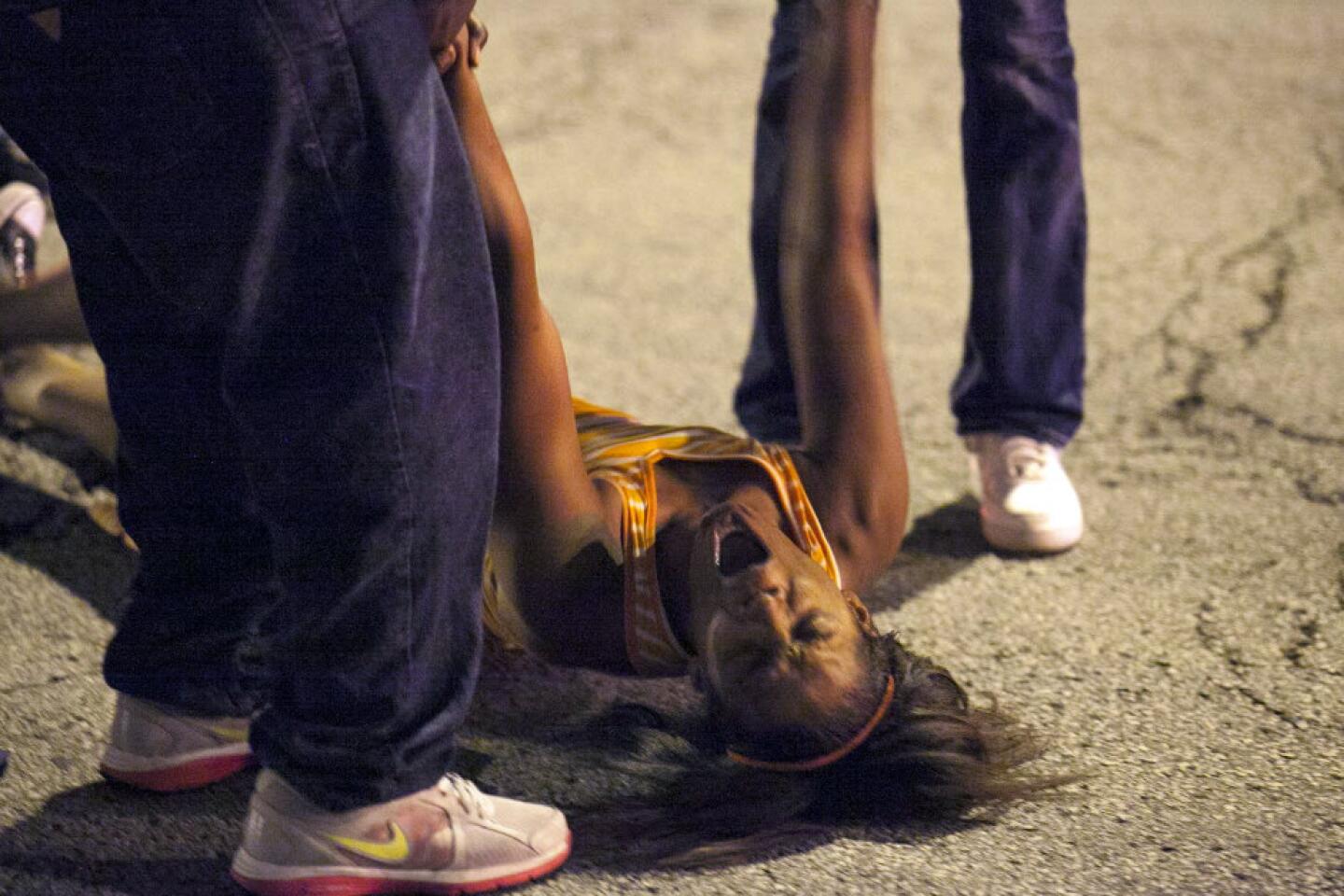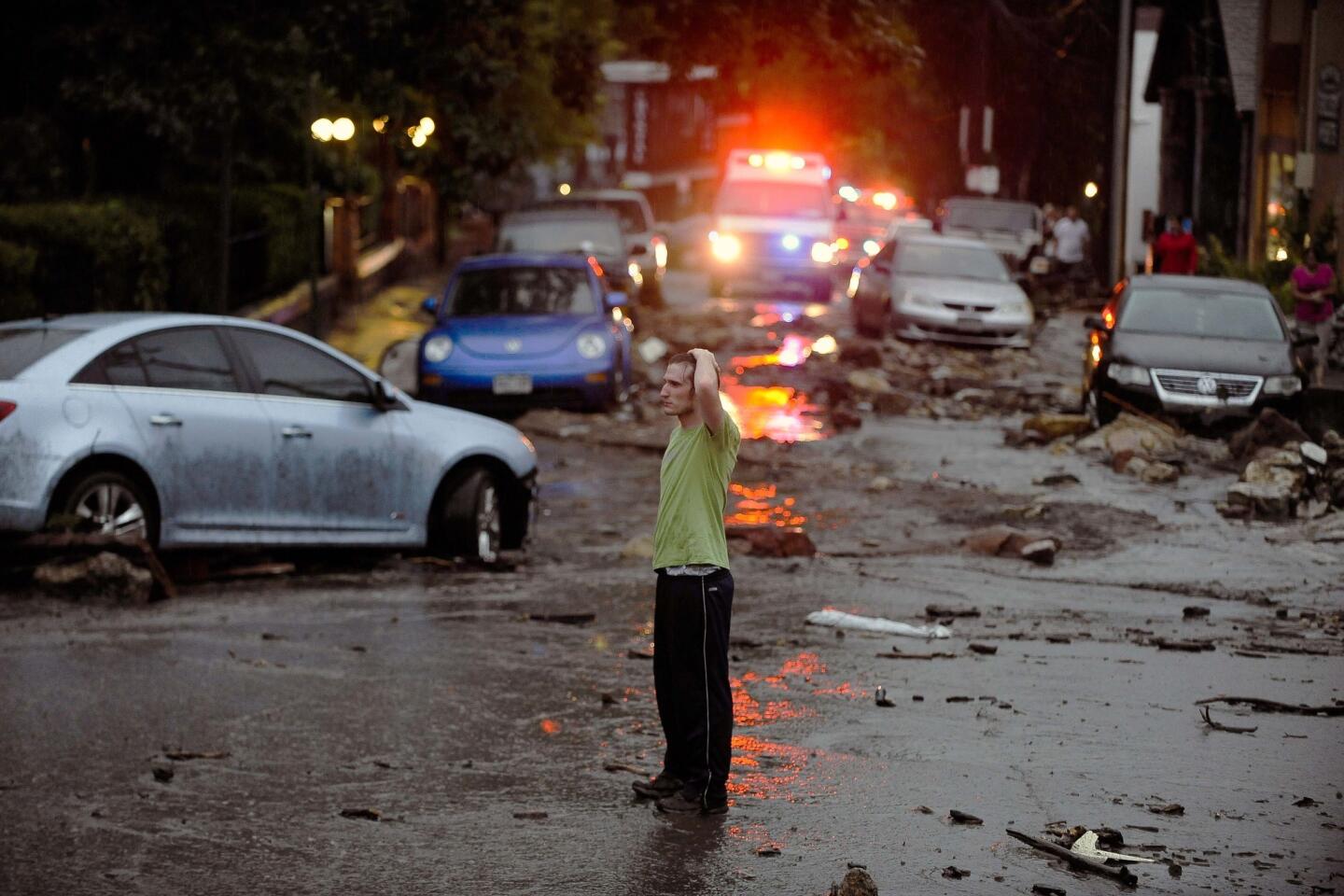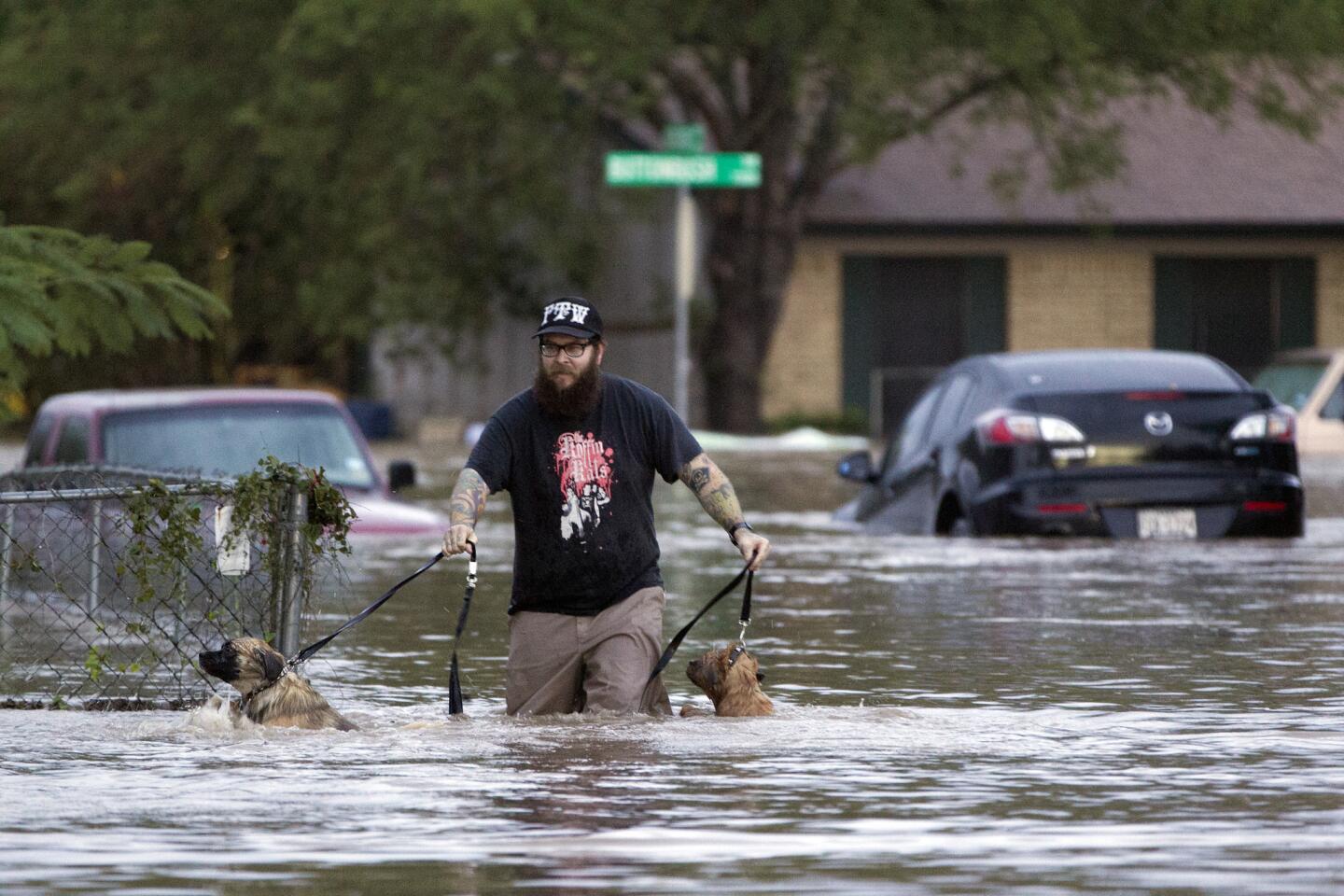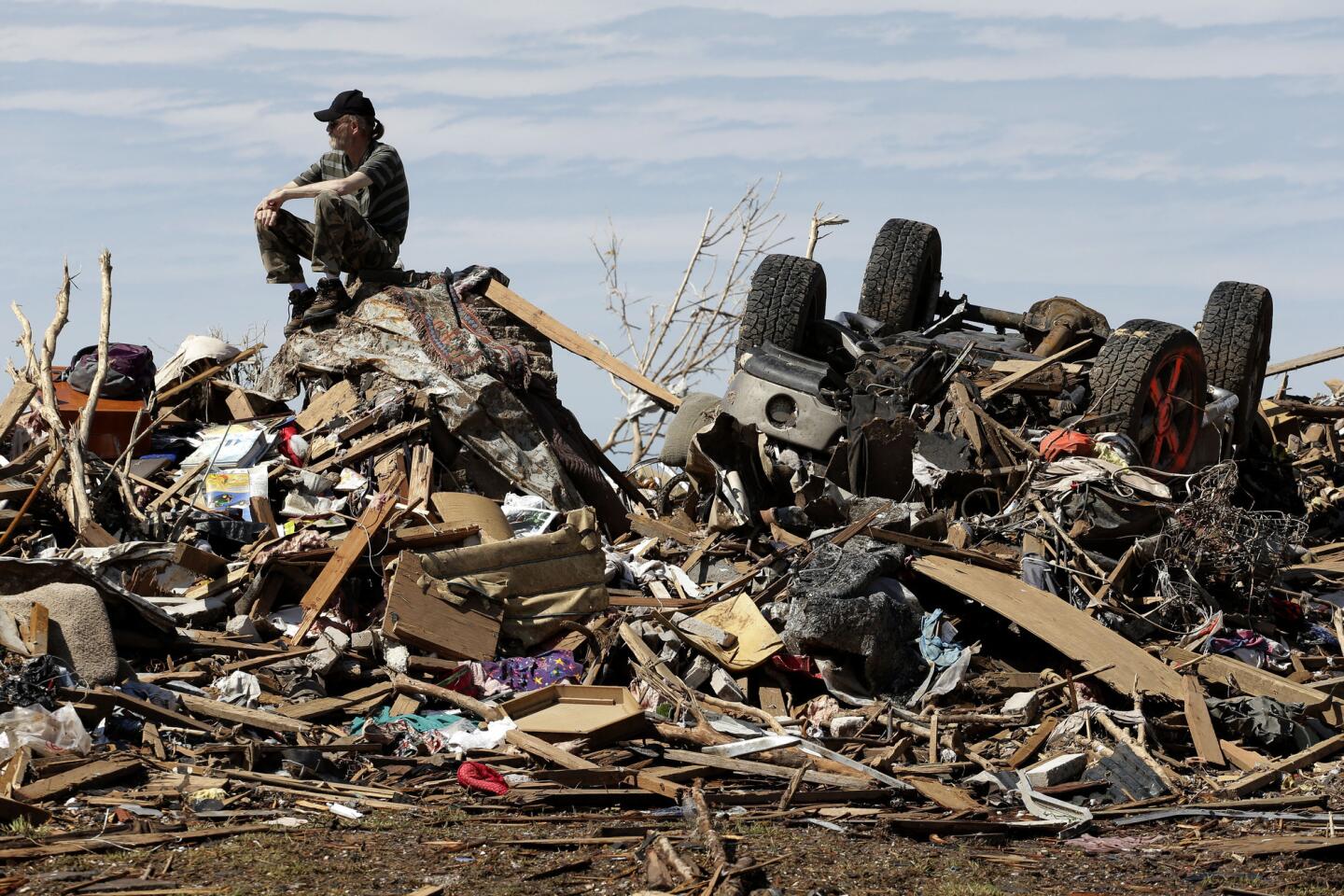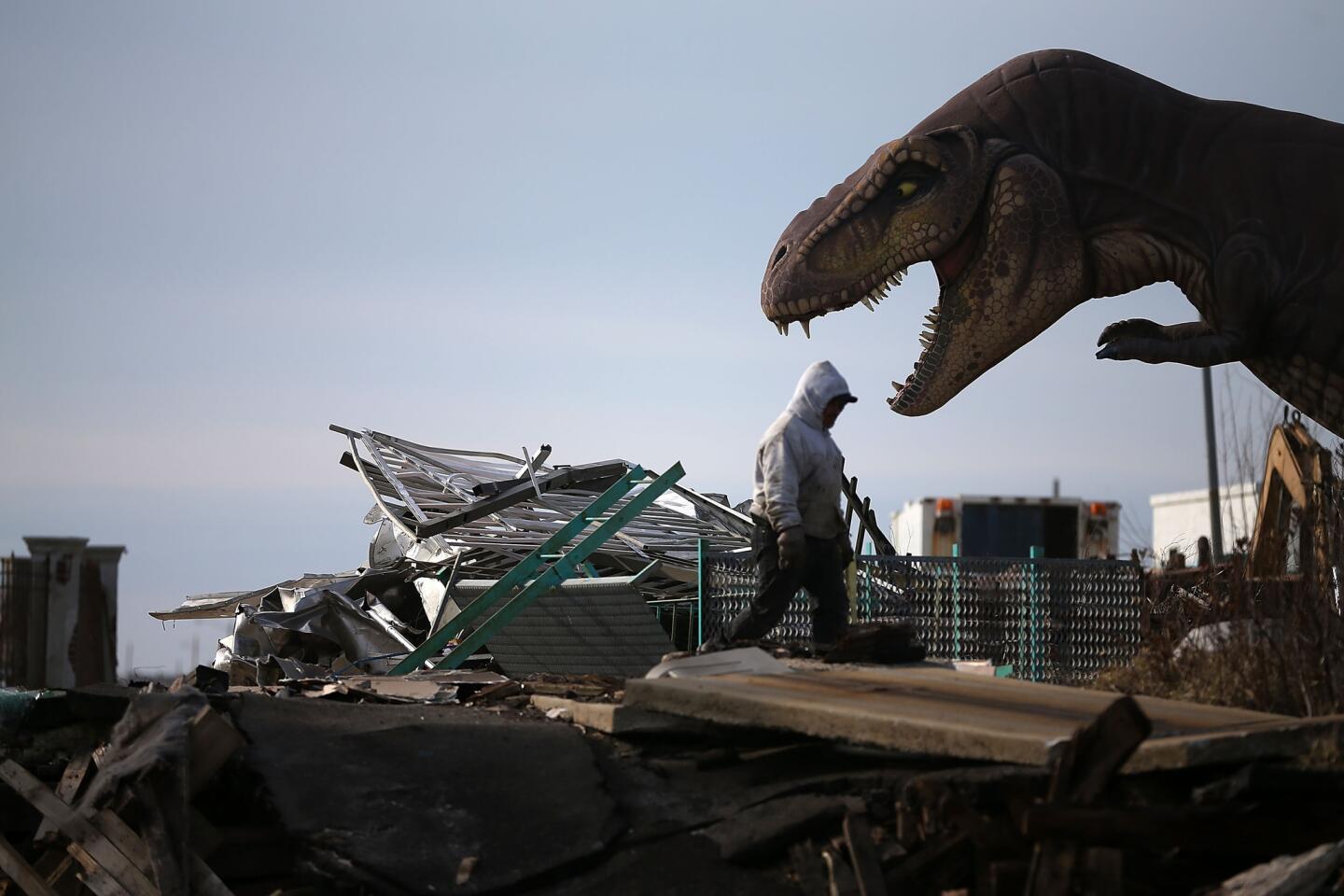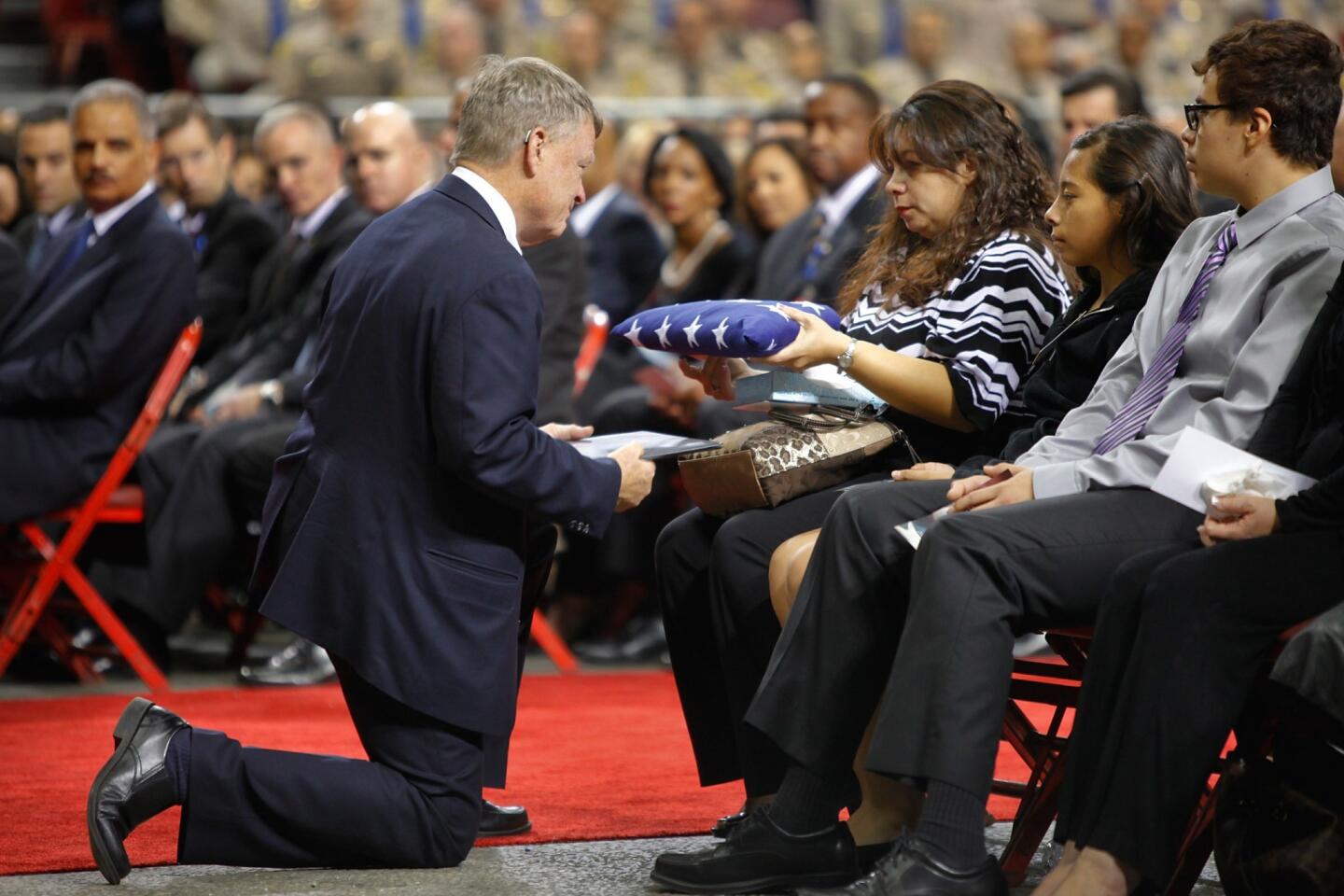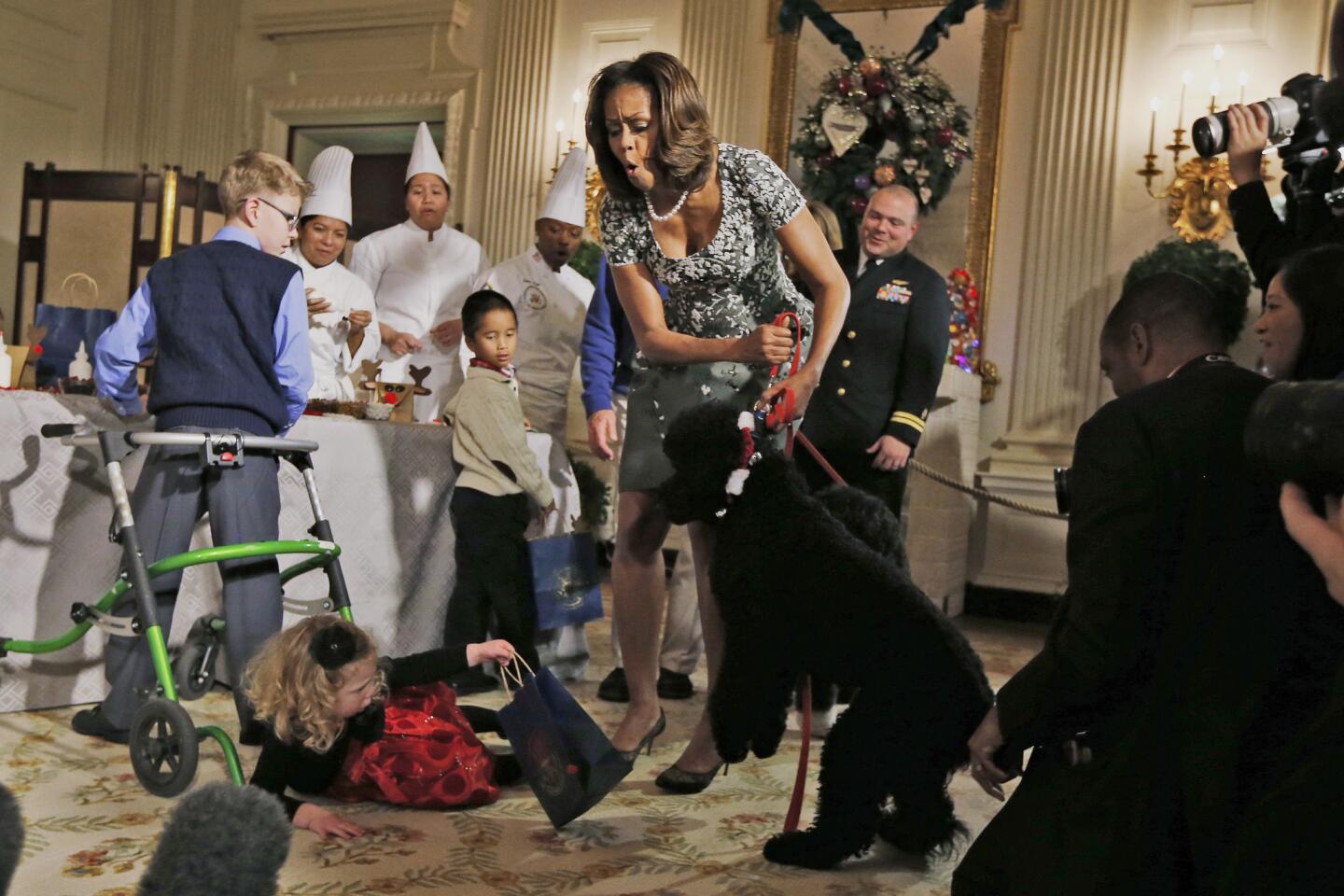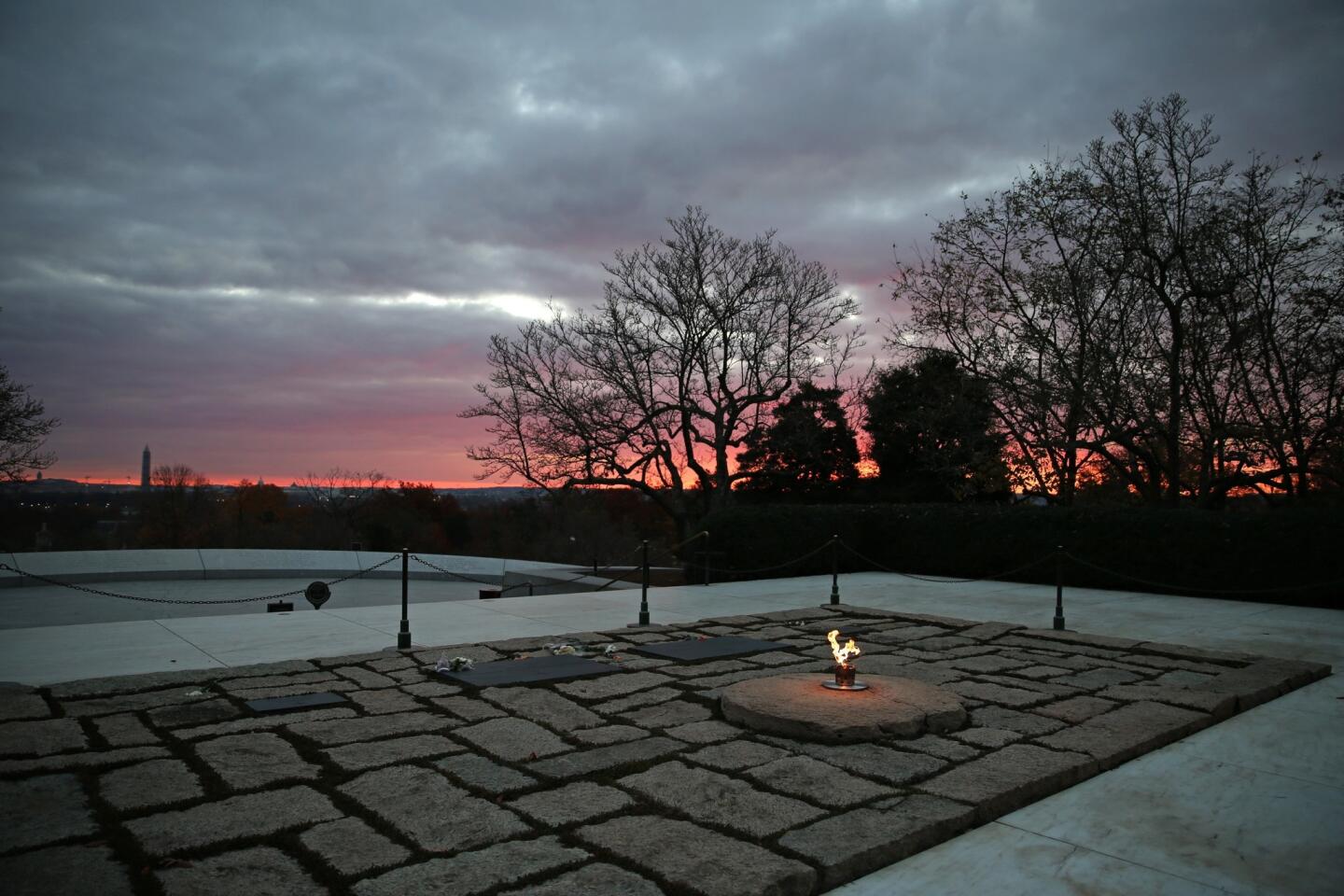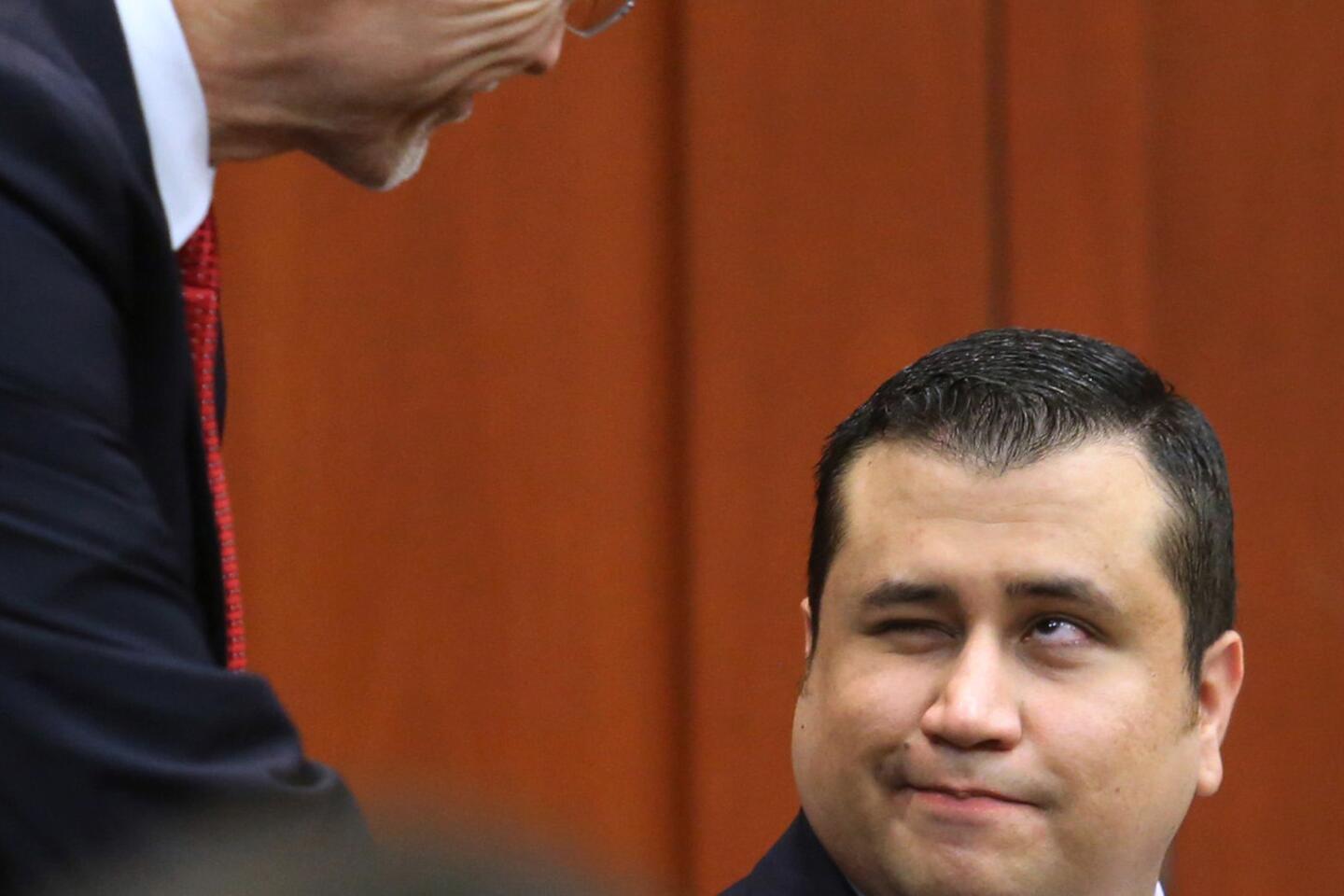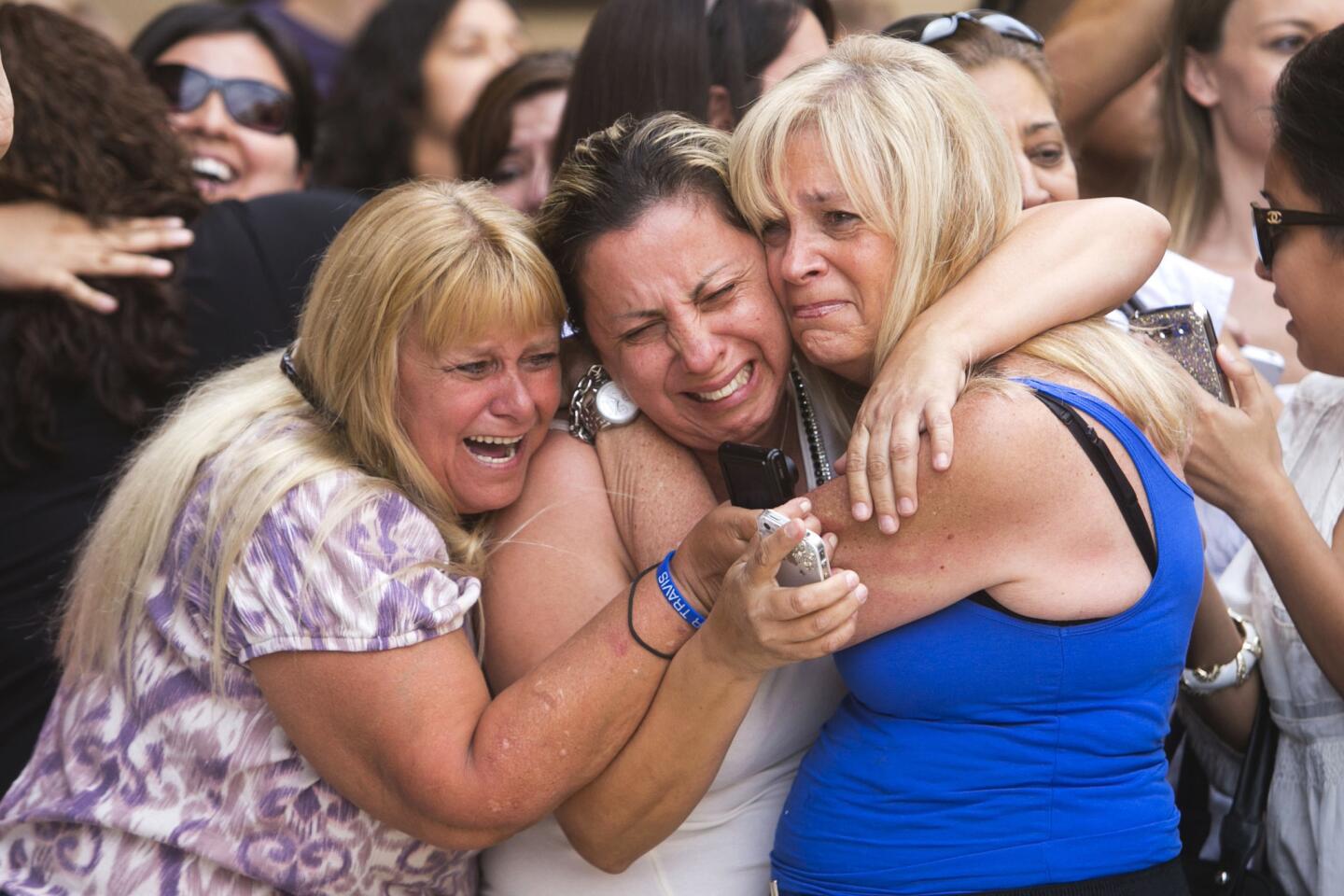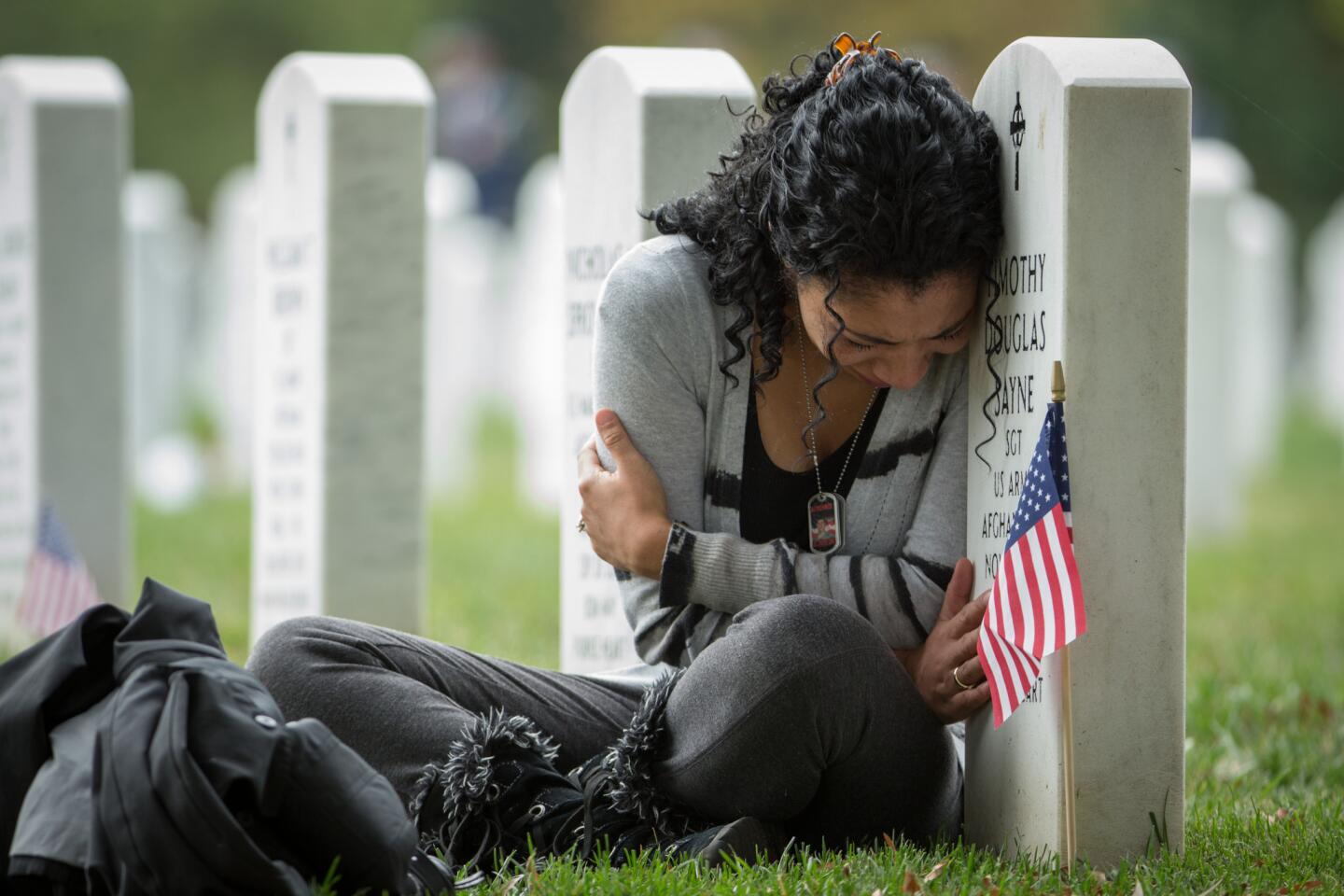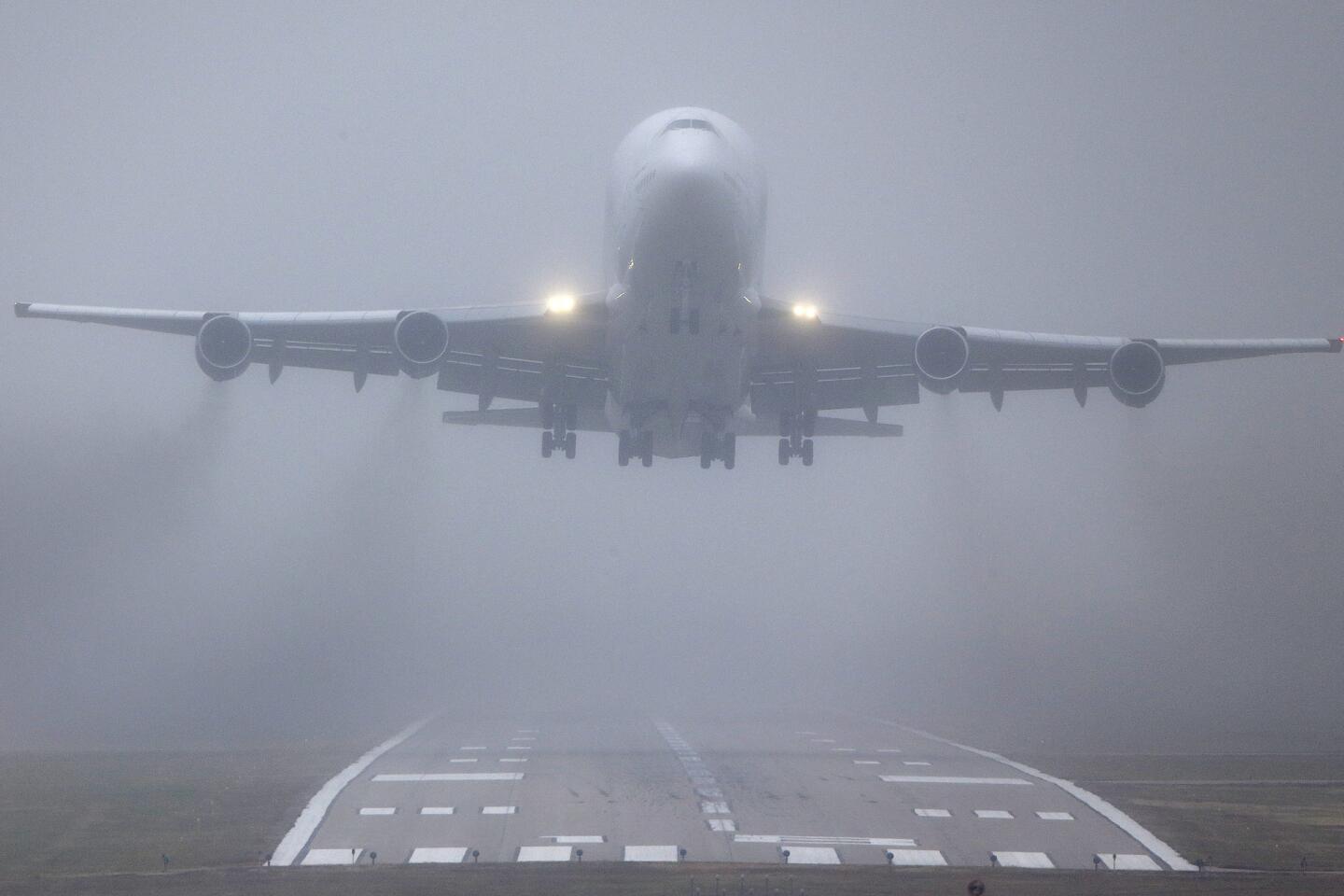Air Force memberâs allegation of sex assault brings him more grief
TRAVIS AIR FORCE BASE, Calif. â Shortly after he arrived at Ramstein Air Base in Germany in March 2012, Air Force security guard Trent Smith was at an off-base apartment when, he says, a male sergeant touched him and pressed him to go into the bedroom for sex.
âI said, âNo, I donât want to spend the night,ââ Smith recalled. But Smith, 20, says he felt he had no choice. âI went along with it.â
For Smith, the encounter â which he reported up the chain of command three days later â began an emotional ordeal. As the months passed, his doctors say, the trim, polite airman with an engaging smile suffered bouts of anger, guilt and depression so severe that he contemplated suicide several times.
More disturbing for a Pentagon struggling to gain control of a seeming epidemic of charges concerning rape and unwanted sexual advances in the ranks, Smithâs attempts to get help only worsened his troubles. After a lengthy investigation, the military decided that no crime had occurred, and it later moved to discharge Smith on medical grounds.
TIMELINE: The year in politics
The case highlights a little-recognized reality for the male-dominated military. Although members of Congress have focused their outrage on abuse of women in uniform, the Pentagon reported in May that 53% of the estimated 26,000 troops who were raped or forced into sex last year were men.
Although women are proportionally more likely to be the victim of a sexual assault â the Defense Department estimates that 6.1% of women and 1.2% of men are victims of sexual assaults â the fact that men so vastly outnumber women in the military means that the problem affects more men than women.
Only a fraction of those alleging rape or sexual assault file complaints with military police or prosecutors, as a rule, so the Pentagonâs most recent estimates are based on a confidential survey of service members. Smith was among those who did file an official report.
After a six-month criminal investigation, Brig. Gen. Charles K. Hyde, then commander of the 86th Airlift Wing at Ramstein, decided the sex was consensual, according to case records. The sergeant was admonished for an âunprofessional relationshipâ with a lower-ranking airman, the lightest punishment possible.
The Times is not naming the sergeant because he was not charged. He declined an interview request through a base spokesman at Ramstein. The spokesman, Maj. Tony Wickman, said the sergeant was considered an âabove-average airman.â
During the investigation, Smith revealed that he was bisexual. He said other security guards mocked him for âbeing a snitchâ and used an anti-gay epithet, according to his Air Force medical records.
After Smith was transferred to Travis in October 2012, an Air Force psychologist recommended his discharge from the service. She said a personality disorder made his traumatic stress untreatable.
âHis condition is so severe it is not conducive with continued military service,â the psychologist, Capt. Andrea Graves, and her supervisors at the base mental health clinic wrote in a May memo. It called him âdepressive,â âpassive-aggressiveâ and âodd, peculiar, paranoid and extremely guarded.â
Many members of the military with post-traumatic stress disorder are allowed to remain on active duty if their condition can be treated with counseling or medication. Smith was different, his doctors said, because the personality disorder they found meant his PTSD could not be treated.
PHOTOS: 2013âs political moments
Smith disputes the diagnosis, and two psychiatrists hired by his lawyers say he does not have a personality disorder. He contends he is being cast off by the Air Force despite exemplary fitness reports from his superiors at the Travis chapel, where he had been assigned since March.
âIâm willing to do whatever I need to do to stay in the Air Force, and they donât care,â Smith, who is appealing the discharge order, said in an interview. âThe system works against you when you start having problems.â
His problems are rooted in another traumatic episode. Growing up in Tigard, Ore., just outside Portland, he was sexually abused at age 12 by a male teenager, he says.
But Smith got good grades in high school, played jazz trumpet and made the basketball and track squads, according to documents supplied by his lawyers. He enlisted in the Air Force after graduation in 2011.
He was sent to Ramstein in March 2012 and assigned to a police unit that patrolled an Air Force apartment complex outside the base. That June, the staff sergeant, who was Smithâs âunit sponsor,â a noncommissioned officer responsible for easing recent arrivals into their new assignments, invited him to dinner.
Smithâs abuse as a child left him fearful that night, he said. It âwas the reason I froze and went along.â
Smith initially reported the incident without naming the sergeant, an option permitted in the military for victims of alleged sexual assaults who want to receive counseling but not start a formal investigation.
He changed his mind and filed a formal complaint, launching the criminal case, two months later after a friend told him she had heard the same sergeant had been involved in a similar incident with another airman. The alleged victim later denied to investigators that any wrongdoing had occurred.
âI wanted to move on with my life, but the moment I reported it, it just made things worse,â Smith said.
His Air Force medical records show he was considered a suicide risk after he said, âI might as well kill myself.â Smith insisted he was only joking, but when the Air Force officials checked his computer, they found online searches on overdosing on cold medicine. He said they were ârandom searches.â
He says that he repeatedly ran into the sergeant he had accused and that the sergeant once laughed at him as he drove past the gatehouse where Smith was working. After he complained of insomnia and anxiety, he was diagnosed with âacute stress reaction.â
After he was transferred to Travis to be closer to his family, he was assigned to work in the base chapel. He assisted with memorial services and briefed new arrivals about the chaplainâs office.
In a memo in May that recommended against his discharge, Col. Robert R. Cannon, the wing chaplain at Travis, praised Smith as âan outstanding airmanâ who âembodies the Air Force core values.â
Smithâs assignment at the chapel was temporary, however, and his commander, Lt. Col. Enrico W. Venditti Jr., turned down his request to be trained for a permanent assignment because he had not yet served two years, as the rules require.
And because Smith was barred from carrying a weapon because of the suicide risk, Venditti also said he could not be a security guard again.
That was fine with Smith. âI have a medical condition that does not allow me to work in the security forces,â he told his doctor, according to Air Force records. âI was sexually assaulted by a security forces member. I will take almost any other job.â
On Dec. 4, three Air Force doctors agreed at a two-hour hearing at Randolph Air Force Base in San Antonio that Smith should be given a medical discharge.
Smith has asked the Air Force secretary, Deborah Lee James, to overturn the discharge order, his last chance to stay in the service.
âI really feel betrayed,â Smith said. âI love the Air Force, and I love being able to serve my country.â
More to Read
Sign up for Essential California
The most important California stories and recommendations in your inbox every morning.
You may occasionally receive promotional content from the Los Angeles Times.
